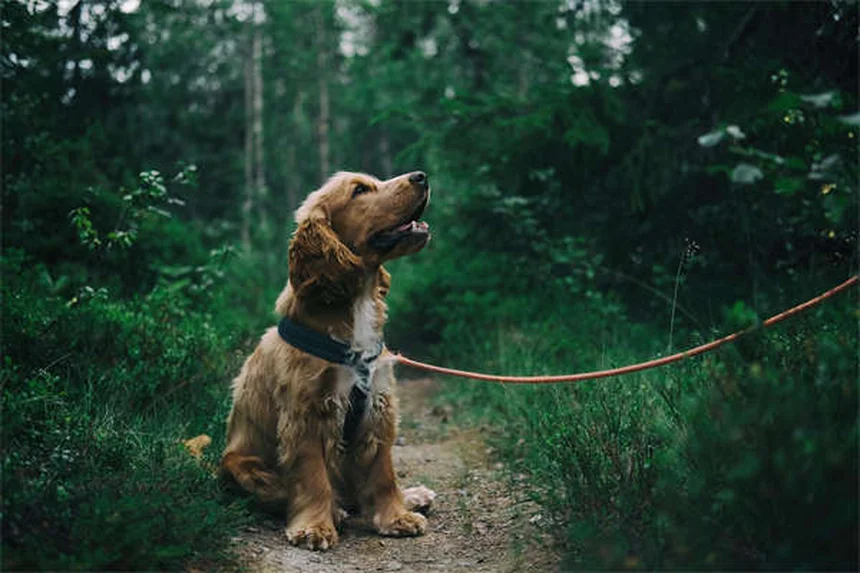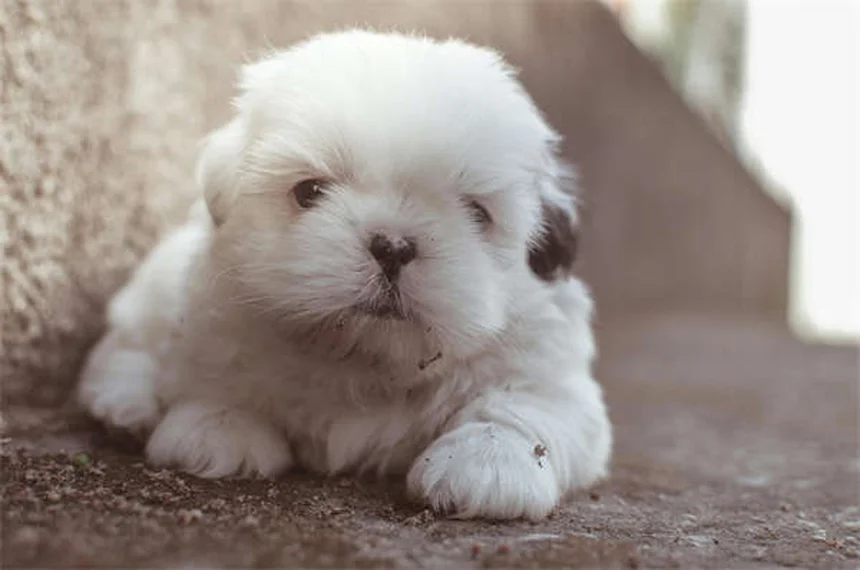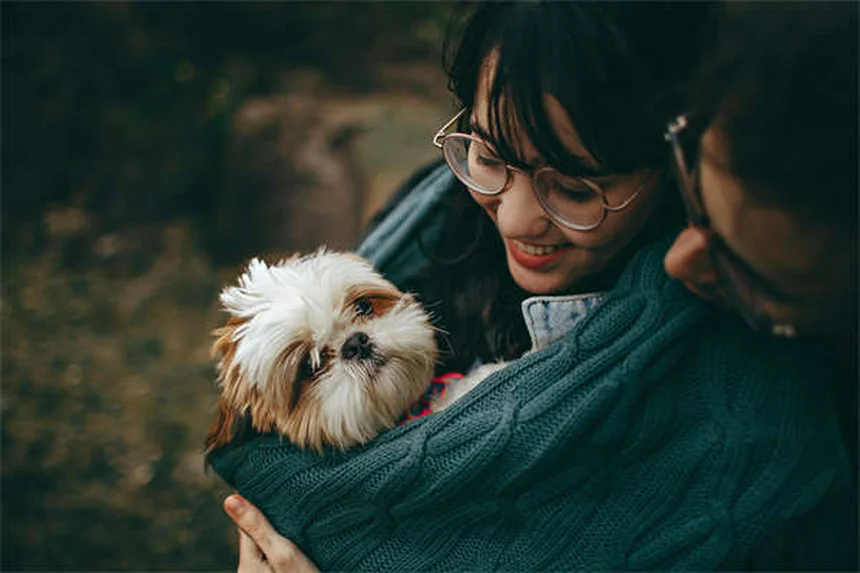Advertisement
How can I make my puppy's first night at home easier? The answer is simple: with preparation and patience! Your puppy's first night home can be challenging, but we've got proven strategies to help both of you sleep better. From crate training to bedtime routines, these tips will turn that stressful first night into a bonding experience you'll both remember fondly.I remember my first night with Max, my golden retriever puppy. Let me tell you - it wasn't pretty! But after helping hundreds of new puppy parents, I've learned exactly what works. The key is understanding that your puppy is scared and confused in this new environment. They've just left their mom and siblings, and everything smells and sounds different. That's why we focus on creating comfort and routine right from the start.In this guide, we'll walk through five essential steps to ace your puppy's first night: setting up the perfect crate, timing meals right, pre-bedtime play, final potty breaks, and handling those inevitable puppy cries. Stick with these techniques, and you'll be amazed at how quickly your new furry friend settles in!
E.g. :How to Stop Your Puppy From Peeing in the House: 7 Proven Training Tips
- 1、Welcome to Puppy Parenthood!
- 2、Pre-Bedtime Puppy Olympics
- 3、Surviving the Puppy Blues
- 4、Bonus Tips for New Puppy Parents
- 5、Final Thoughts
- 6、Beyond the Basics: Advanced Puppy Parenting
- 7、Training Hacks They Don't Tell You
- 8、Puppy Nutrition: Beyond the Bag
- 9、Health Matters: Prevention is Everything
- 10、Puppy Proofing 2.0
- 11、FAQs
Welcome to Puppy Parenthood!
Congratulations on your new furry family member! That first night with your puppy can feel overwhelming, but don't worry - we've got your back. Let's make this transition as smooth as possible for both of you.
Creating the Ultimate Puppy Den
Did you know a crate can become your puppy's favorite spot in the house? It's true! Dogs naturally seek cozy spaces when they feel nervous. That's why crate training works so well - it gives them their own personal retreat.
Here's how to transform that metal box into a five-star puppy hotel:
- Food is love: Serve meals and treats inside the crate to create positive associations
- Comfort is key: Add soft bedding (unless your pup prefers the cool crate floor)
- Fun factor: Keep favorite toys inside to make it an exciting place
Remember: Never use the crate as punishment. We want this to be their happy place, not puppy jail!
The Magic of Meal Timing
Ever wonder why your puppy seems to poop at the worst possible times? It's all about schedule. Here's the scoop on feeding:
| Puppy Age | Meals Per Day | Best Times |
|---|---|---|
| Under 14-18 weeks | 3 | Morning, Noon, 5pm |
| Over 18 weeks | 2 | Morning, Evening |
Pro tip: Serve dinner around 5pm. This gives your pup time to digest and do their business before bedtime. Fewer midnight potty breaks = more sleep for you!
Pre-Bedtime Puppy Olympics
 Photos provided by pixabay
Photos provided by pixabay
Wear Them Out (The Right Way)
You know that saying "a tired puppy is a good puppy"? It's 100% true. But there's an art to pre-bedtime play:
From 7-8pm, go all out with fun activities. Then from 8-9pm, gradually wind down. This helps your puppy transition to sleep mode instead of crashing from overstimulation.
Here are some winning activities:
- Training sessions (mental exercise tires them out faster than physical!)
- Short walks (after vaccinations - safety first!)
- Interactive games like hide-and-seek with treats
The Last Call Potty Break
Why is the bedtime potty break so crucial? Because it's your best chance at uninterrupted sleep! Take them out right before bed, even if they don't seem to need to go.
Expect some midnight bathroom trips at first. Puppies have tiny bladders! Here's what to expect:
- Daytime: Potty breaks every 1.5 hours
- Nighttime: Can usually hold it 4-6 hours
Surviving the Puppy Blues
Understanding the Puppy Lullaby (aka Whining)
Is your puppy's nighttime crying breaking your heart? Remember - they've never slept alone before! Those first few nights can be scary without their littermates.
Here's how to comfort them without creating bad habits:
- Keep the crate in your bedroom at first
- Add a worn t-shirt with your scent
- Use white noise to mimic the sounds of their litter
 Photos provided by pixabay
Photos provided by pixabay
Wear Them Out (The Right Way)
Not all whines are created equal. Early night crying is usually loneliness. Middle-of-the-night cries probably mean "I gotta go!" Learn the difference and you'll both sleep better.
Pro tip: Set up a puppy camera to observe their behavior when you're not in the room. You might discover some funny sleeping positions!
Bonus Tips for New Puppy Parents
Essential First-Night Supplies
Want to be extra prepared? Here's your puppy survival kit checklist:
- Chew-proof water bowl
- Enzyme cleaner (for accidents - they will happen!)
- Snuggle puppy toy with heartbeat
- Emergency contact numbers (vet, 24-hour clinic)
Setting Realistic Expectations
That picture-perfect puppy sleeping peacefully through the night? That's usually night 3 or 4. The first night is more like:
- Multiple potty breaks
- Some whining
- You questioning your life choices
But hang in there! By week two, you'll start seeing real progress. And that first morning when your puppy greets you with wagging tail? Worth every sleepless night.
Final Thoughts
Remember - you're not just training your puppy. You're both learning how to live together. Those first challenging nights will become funny stories you tell later. Before you know it, you won't remember life without your furry friend.
Got a funny first-night-with-puppy story? We'd love to hear it! Share your experiences in the comments below.
Beyond the Basics: Advanced Puppy Parenting
 Photos provided by pixabay
Photos provided by pixabay
Wear Them Out (The Right Way)
You know what's more fascinating than puppy eyes? Their entire body speaks volumes if you know how to listen. That tail wag isn't always happiness - a stiff high wag can mean alertness or even aggression.
Here's a quick cheat sheet to decode your pup's silent messages:
- Yawning: Could mean stress, not just tiredness
- Lip licking: Often a sign of nervousness
- Play bow: Front down, butt up means "Let's have fun!"
Socialization: More Than Just Dog Parks
Did you know the critical socialization window closes around 16 weeks? That's why those early experiences matter so much. But here's the kicker - it's not just about meeting other dogs.
Your puppy needs positive exposure to:
| Category | Examples | Why It Matters |
|---|---|---|
| Surfaces | Grass, tile, gravel, wood | Prevents fear of walking on certain textures |
| Sounds | Vacuum, doorbell, thunder | Helps avoid noise phobias later |
| People | Men with hats, kids, elderly | Reduces fear of different human appearances |
Pro tip: Carry treats everywhere during this period. Every new experience = tasty reward!
Training Hacks They Don't Tell You
The Power of "Capturing" Good Behavior
Why wait to teach commands when you can catch your pup being good? This technique called "capturing" is magic. See your puppy sit naturally? Say "yes!" and toss a treat.
Before you know it, they'll offer behaviors hoping for rewards. It's like they're training themselves! I've seen puppies learn "down" in two days using this method.
Name Game: More Than Just Recall
Think your puppy's name is just for calling them? Think again! Their name should mean "look at me" in dog language. Here's how to make it powerful:
- Say their name when they're already looking at you
- Immediately reward with treats or praise
- Never use their name for scolding
This simple trick builds focus that makes all future training easier. Try it during mealtime - say their name as you put the bowl down. Instant attention!
Puppy Nutrition: Beyond the Bag
The Great Kibble Debate
Walk into any pet store and you'll find walls of puppy food options. How do you choose? Here's what most new owners don't realize - the feeding guidelines on bags are often overestimates.
Your pup's ideal weight depends on:
- Breed size (small breeds need more calories per pound)
- Activity level (couch potato vs. athlete)
- Individual metabolism (just like humans!)
Treats: The Good, The Bad, and The Ugly
Ever wonder why training treats are tiny? Because you'll be giving hundreds! But here's a secret - you can use their regular kibble for most training sessions.
Save the high-value treats (like chicken or cheese) for:
- New or challenging commands
- Distracting environments
- Emergency recalls outside
Remember: Treats should never exceed 10% of daily calories. Those puppy eyes will try to convince you otherwise!
Health Matters: Prevention is Everything
Vet Visits: More Than Just Shots
Those early vet appointments aren't just for vaccinations. They're golden opportunities to:
- Get professional weight checks (puppies grow fast!)
- Discuss spay/neuter timing for your breed
- Catch potential issues early
Pro tip: Bring a list of questions. Vets love informed owners!
DIY Health Checks Between Visits
Why wait for the vet to spot problems? Make weekly health checks part of your routine:
- Ears: Should smell neutral, not yeasty
- Teeth: Gums should be pink, not red
- Coat: Look for unusual flakes or bald spots
Getting your pup comfortable with handling now makes future vet visits easier too. It's a win-win!
Puppy Proofing 2.0
Hidden Dangers in Plain Sight
You've probably covered the basics like electrical cords. But puppies find trouble in unexpected places:
- Houseplants (many are toxic)
- Laundry (socks are intestinal blockages waiting to happen)
- Trash cans (puppy buffet of dangers)
Get down on puppy level to spot hazards. If they can reach it, they'll probably chew it!
The Art of Redirection
Puppies explore with their mouths - it's normal. Instead of constant "no's," keep acceptable chew toys everywhere. See them gnawing your shoe? Swap it for a bully stick.
This teaches what's okay to chew while saving your belongings. My favorite trick? Freeze wet washcloths for teething relief!
E.g. :Puppy's first night home: What did you learn and/or wish you did ...
FAQs
Q: How long will my puppy cry on the first night?
A: Most puppies will cry for 1-3 hours on their first night, though some may continue off and on for several nights. Remember, they've never slept alone before! The crying usually peaks in the first hour after bedtime. We recommend using white noise or a ticking clock near the crate to mimic the sounds of their littermates. If the crying continues beyond 15 minutes of settling in, try quietly reassuring them without taking them out (unless it's a potty emergency). Consistency is key - giving in teaches them that crying gets attention.
Q: Should I let my puppy sleep in my bed the first night?
A: While it's tempting to cuddle your new puppy all night, we strongly recommend against sharing your bed right away. Establishing good crate habits from day one prevents future behavior issues. Instead, place the crate next to your bed where your puppy can see and smell you. This provides comfort while maintaining boundaries. If you eventually want to co-sleep, wait until they're fully housetrained and past the chewing phase (usually around 6 months).
Q: How often should I take my puppy out at night?
A: For young puppies (8-12 weeks), plan for potty breaks every 3-4 hours at night. Set alarms rather than waiting for whining, as some puppies won't signal. The last bathroom trip should be right before bedtime, and the first one as soon as you wake up. Keep nighttime potty breaks boring - no playtime, just business. As your puppy grows, they'll gradually sleep longer stretches. Most can go 6-8 hours by 4-5 months old.
Q: What if my puppy won't settle in the crate?
A: First, ensure all their needs are met - they've gone potty, aren't hungry, and aren't too hot/cold. Then try these calming techniques: cover the crate with a light blanket to create a den-like feel, play soft classical music, or use a pheromone spray designed for puppies. Some pups respond well to a stuffed animal with a heartbeat simulator. If they still resist, try moving the crate closer to your bed temporarily. Remember - this is new for them, and consistency pays off!
Q: When will my puppy sleep through the night?
A: Most puppies start sleeping 6-8 hour stretches between 12-16 weeks old, but this varies by breed and individual. Smaller breeds may need more frequent bathroom breaks. The good news? You'll see gradual improvement each week. Track your puppy's progress - if they're consistently making it 4 hours by week two, they might hit 6 hours by week four. Celebrate these small victories! Before you know it, you'll both be enjoying full nights of sleep.







